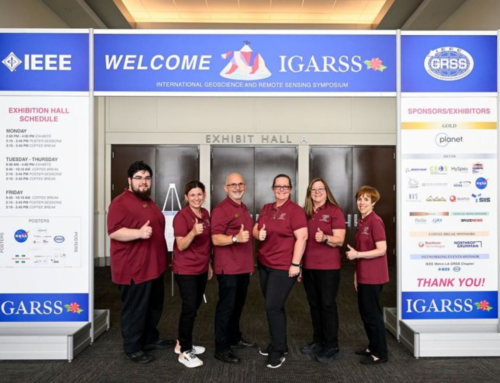Since the 1980s, businesses have been interested in artificial intelligence (AI) development for the growth of their companies. In the 21st century, major social media corporations such as Twitter and Facebook utilize AI to help drive their advertising, algorithms, and overall UX experience. As AI becomes more advanced and widespread, the ways in which businesses can automate personalized experiences for their customers also expands.
For conference and event planners, it is important to provide relevant information that industry professionals can utilize in their work. In his Forbes article, Valter Klug of Samba Rock describes AI “as an essential tool to study and understand in order to stay current with market trends and improve deliverables’ effectiveness.” As the number and scale of professional conferences continues to grow, event planners can explore how artificial intelligence can optimize numerous aspects of conference management and deliver more value to attendees.
- AI and Conference Planning
- Maximize Efficiency During the Conference
- Gain Insights Through AI-Powered Data Analysis
AI and Conference Planning
- Automate administrative tasks
Planning a conference of any size requires a lot of planning and coordinating moving parts. AI systems can free up an event planner’s time by automating repetitive tasks such as:
-
-
- Send automated emails for registration, travel considerations, and billing
- Track RSVPs in auto-updating dashboards
- Review speaker submissions
-
AI software options are available with free and paid versions to help streamline work across teams, the planning process, and post-event data analytics. Taskade is a great option that provides a variety of templates to help teams brainstorm, keep track of progress, and detail action items.
- Analyze venue options
Artificial intelligence comes in many forms, and one of the most commonly mentioned is ChatGPT. It can be used on its own to help event planners generate ideas and research their desired location based on conference needs and parameters. For international event management services, there is not always time or resources to send a member of the team to the location before-hand, so AI can help generate recommended vendors and available event spaces within a specified budget.
Maximizing Efficiency During the Conference
- Personalize the attendee experience with AI chatbots
ChatGPT can be integrated into a chatbot on your website or event app to help answer user questions. These chatbots function as virtual assistants to provide personalized recommendations, directions, and answers to FAQs. Especially for international conferences, AI provides translation services to attendees in their native language so that they can navigate the event easier.
- Expedite on-site registration and check-in
Automated check-in kiosks can utilize QR codes, scan ticket barcodes or badges, and even use facial recognition. These systems track data to help the event coordinators manage attendance levels. Utilizing AI during an event can help staff handle expectations and give more time to engage with attendees. During busy times such as check-ins and transitions between speakers, AI chatbots help attendees make the most out of the conference experience.
Gain Insights Through AI-Powered Data Analysis
- Track attendee engagement
Apps are an easy way for conference management companies to elevate the user experience. They also provide valuable data about the usage of the conference app and which features attendees use the most: schedules, maps, networking, content sharing, and gamification. When management looks back on data collected during the event, they can identify areas of the app that need to be tailored for the future.
Even without an app, AI can track online activity to see user engagement with speaker bios, poster abstracts, and sponsor information. Additionally, conference management can monitor session attendance to see which skills and topics peak the most interest.
- Sentiment analysis
Online engagement via social media can be difficult and time consuming to analyze, especially if conferences have related hashtags or profiles that they encourage attendees to use. AI can interpret online shares, comments, and interactions to determine the opinions of users. It will categorize text into three main categories: positive, negative, and neutral. Common algorithms utilize text analysis tools to determine the user’s tone with contextual information that categorizes their intentions.
- Predicting future conference needs and trends
Once the event has completed, management services can utilize all of the passive data to determine factors that drive successful conferences and user experiences. These insights can guide decisions for future events regarding marketing and promotion content, pricing, venue and speaker selection, and more.
As AI continues to advance, its application in the events sphere will expand as well. When hosts automate processes, the event is more accessible and impactful to a wider audience. By embracing AI’s benefits early on, conference organizers can unlock greater efficiency and value with data-driven insights and enhanced attendee experiences.





